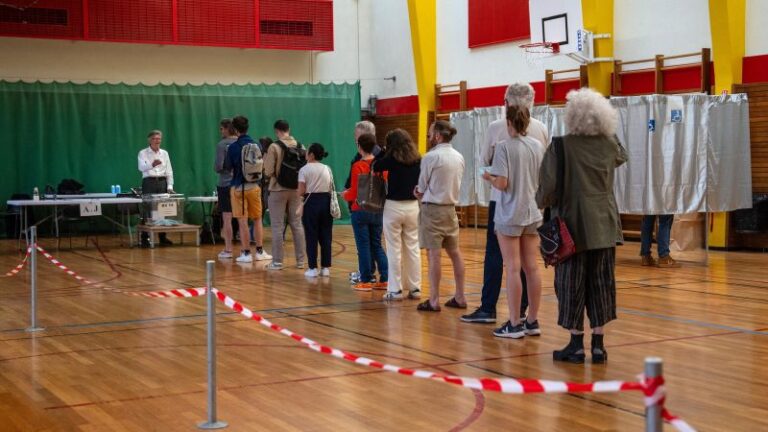Members of the French parliament, known as “deputies,” are elected for five years – but the president can call a snap election whenever they please, so long as it’s at least one year after the previous vote.
France’s parliament, known as the National Assembly, has 577 seats, one for each of its electoral districts. For an absolute majority, a party needs 289. In the outgoing government, Emmanuel Macron’s alliance had only 250 seats, and so needed support from other parties to pass laws.
Voting takes place over two rounds, always on Sunday.
If a candidate wins a majority of votes in the first ballot on a 25% turnout, they win the seat. Only 76 candidates were elected in the first round: 39 from the far-right National Rally and its allies, 32 from the left-wing New Popular Front, and just two from Macron’s Ensemble.
Most elections go to a second round. Only those who won more than 12.5% of ballots cast by registered voters are allowed to stand in the second round, meaning it is often fought between two candidates.
But this second round has the highest-ever number of three-way runoffs. This has led to more than 200 centrist and left-wing candidates agreeing to step down to avoid splitting the vote and keep the far right out of power.
Once the parliament is elected, the president typically appoints a prime minister from the party with the most seats. Macron now faces the uncomfortable prospect of having to appoint a prime minister from a different party to his own.


